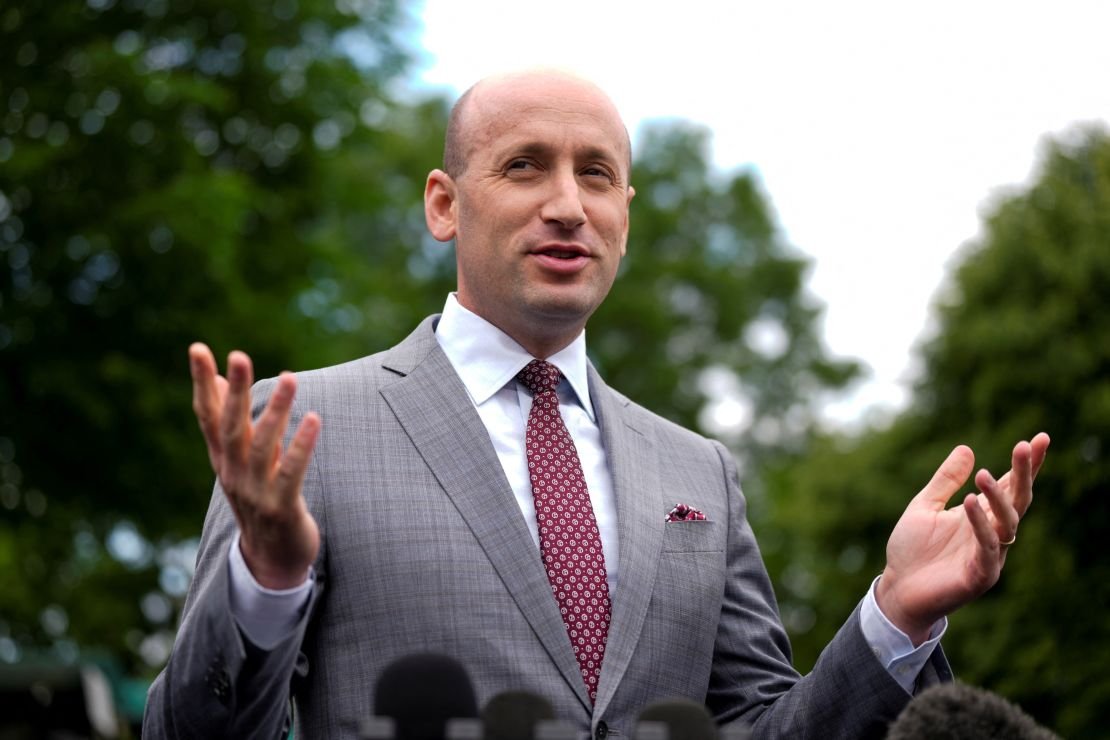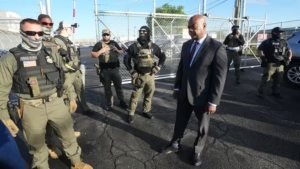Washington, May 10: Former President Donald Trump has been personally involved in top-level talks regarding the possible suspension of the constitutional right of habeas corpus, a judicial protection that guarantees people can contest unlawful detention in a court, according to sources familiar with the situation. The contentious step is being seriously discussed within Trump’s inner circle as part of wider attempts to enforce immigration policy more forcefully.
Stephen Miller, a key adviser to Trump and a central figure in guiding the administration’s hardline immigration policy, affirmed in a public event that suspension of habeas corpus is “being considered actively.” He continued, “It depends on whether the courts do the right thing or not,” indicating increasing irritation in Trump’s camp towards judicial decisions that have stalled or hindered major deportation efforts.
Though Trump himself has not mentioned the phrase “habeas corpus” in public, on April 30 he issued a cryptic reference to steps taken by “three highly respected presidents” to skirt legal limits on immigration enforcement. According to insiders, this was a coded allusion to past examples where habeas corpus had been suspended—usually during war or in situations of extreme national crisis.
Legal scholars caution, however, that doing so would be a drastic and probably unconstitutional expansion of executive authority. The U.S. Constitution permits the suspension of habeas corpus only in instances of “rebellion or invasion” where public safety requires it. Several federal judges, including some Trump appointees, have dismissed arguments that increasing illegal crossings along the border amount to such an invasion.
Legal experts also contend that although the language of the Constitution does not mention the necessity of congressional approval in suspending the suspension clause, historical precedent and legal tradition indicate strongly that such a suspension would need to have legislative support. “Every time the courts have decided on this, they have decided against the states or the administrations trying to stretch the definition of an invasion to justify extraordinary powers,” added George Mason University law professor Ilya Somin.
The Trump administration already floated the concept of labeling suspected gang or cartel members as “enemy combatants,” a legal term to hold them without due process. Widening the same logic to immigrants in general would allow the government to sidestep judicial review, something legal analysts say would almost certainly trigger fierce constitutional battles.
Critics also view the possible suspension as being part of a broader effort by Trump and his supporters to delegitimize the judiciary. Trump has continued to assail judges publicly, and Miller has referred to negative court decisions as a “judicial coup.” As a reaction to such talk, Chief Justice John Roberts recently restated the judiciary’s independence when he declared, “The judiciary is a coequal branch of government … with the power to interpret the Constitution and check the excesses of Congress or the executive.”
Whether or not Trump will proceed with a serious effort to suspend habeas corpus is unclear. Nevertheless, the mere fact of debating such a step indicates that the administration is willing to test legal and constitutional limits in order to achieve its immigration policy — an advance that is likely to be a central theme in future legal disputes and political debate.
for more news visit questiqa.us








Average Rating